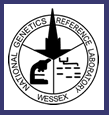
We held a workshop in London on the 3rd March 2008 to discuss
RNA splicing abnormalities in relation to genetic diagnosis
and in particular the interpretation of sequence variants
of unknown pathogenicity. The meeting was jointly organised
by NGRL (Wessex) and EURASNET, the Framework 6 Network of
Excellence that covers a wide range of interests relating
to alternative splicing (www.eurasnet.info). The workshop
was attended by 28 people and aimed to:
Whilst the methodology for RNA studies has been available
in a research setting for many years, the transition to a
quality assured diagnostic setting in the UK has been limited.
There are several reasons for this, including lack of experience,
difficulty in obtaining and working with patient RNA from
appropriate tissues, difficulty with interpretation of results,
an ever growing variety of splicing regulatory sequences
and the need in many instances for relatively complex minigene/transfection
assays. However the observation that genomic variations affecting
the splicing process may represent between 15-50% of all
mutations in some genes makes this an important area to take
forward.
The workshop consisted of a series of seminars
from EURASNET members and invited speakers, followed by
presentations of
experience of RNA and splicing assays from UK diagnostic
laboratories. Diana Baralle (Southampton) gave an overview
of the clinical problem plus the role and aims of EURASNET.
Emanuele Buratti (Trieste) presented methods to study aberrant
splicing with advantages and disadvantages for diagnostic
purposes. Mario Tosi (Rouen) described his group’s
analysis of unclassified variants in genes predisposing to
breast or colorectal cancer. For mismatch repair genes associated
with colorectal cancer in particular, they found a large
fraction of UVs were associated with splicing defects and
had developed a set of methodologies to be able to assess
this. Brage Andresen (Aarhus) discussed MCAD diagnostic testing
and that splicing abnormalities represented 25-30% of mutations
with 5-10% originally classified as missense or silent sequence
variants. Collectively the experience of these speakers reinforces
the point that whilst bioinformatic prediction programs are
useful indicators, functional testing and data collection
is vital for the future.
The afternoon included short presentations
from 6 laboratories (Belfast, Exeter, Birmingham, NGRL(W),
Guy’s, Barts/London).
Genes investigated included LDLR, RB, HNF1A and B, RET, BRCA1
and 2, hMLH1, hMSH2, VHL, FAP, SOTOS, DMD and COL6 with almost
all this analysis being performed by RT-PCR for the gene
of interest. The limitations of this approach were discussed,
including artefacts generated as a consequence of delays
in sample processing plus variation in splicing between normal
individuals.
Overall the feedback was very positive, with 100% of respondents
agreeing or strongly agreeing that the meeting was relevant,
useful and worth the time they invested in it. More than
95% said that attending the meeting will help them improve
their local service. Further discussion will be needed to
establish best practice in this area and to establish the
need for minigene assays that may assist in determining the
pathogenicity of unclassified variants.
